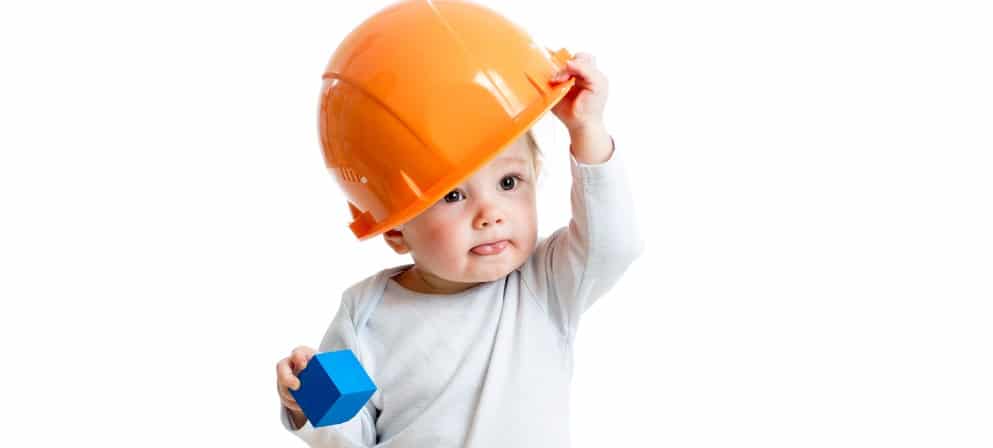
Safety Tips for Parents During Baby Safety Month
September is Baby Safety Month. This month of awareness is sponsored by the Juvenile Products Manufacturers Association (JPMA). This is a time to spread awareness about product safety and how consumers can do their part…
September is Baby Safety Month. This month of awareness is sponsored by the Juvenile Products Manufacturers Association (JPMA). This is a time to spread awareness about product safety and how consumers can do their part to keep their babies safe.
If you are expecting a baby or are a new parent, you want to do everything in your power to keep your baby and family safe. When it comes to the products you buy as a consumer, how do you know what you are getting is safe, effective, and works as advertised? Unfortunately, sometimes you don’t. There are things you can do, however, to be as safe as possible when using any manufactured products.
September may be coming to a close, but these safety tips for parents are applicable all year long. Take a look at some of the ways you can help keep your family safe. If you have questions about a defective product, don’t hesitate to reach out to our team here at MedMalFirm.com.
Baby Safety Month Tips for Parents
As an expectant or new parent, there are some things you can do to promote a safe environment for your baby. Below, we discuss general safety tips, as well as tips related to car seats, play time, and bath time.
General Safety Tips
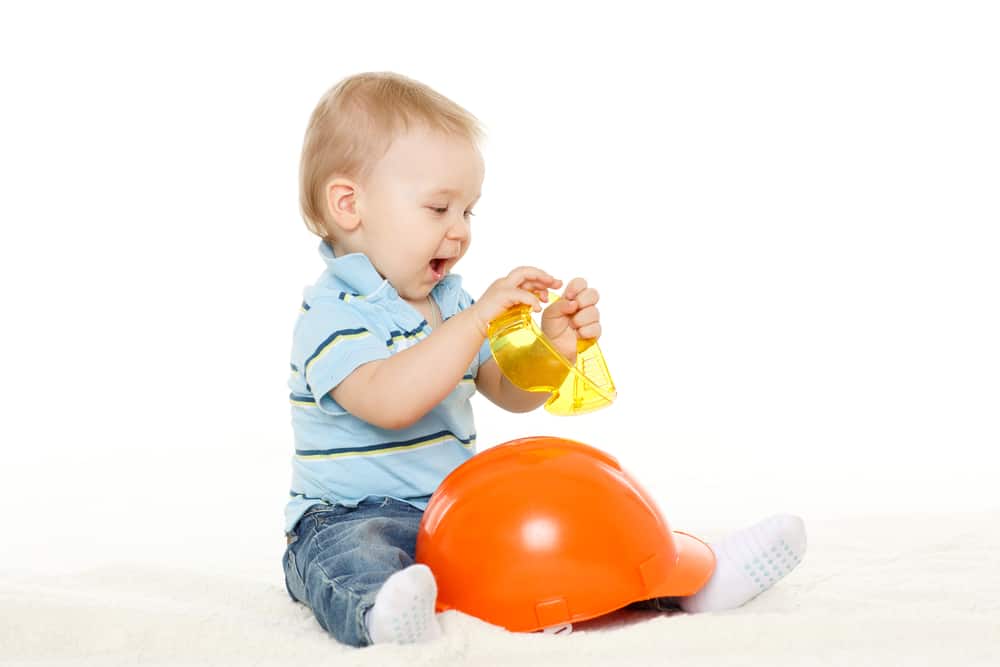
When purchasing or using a product with or for your baby, consider the following safety tips:
- Use products that are age and developmentally appropriate for your child. Manufacturers will supply this information on many baby and child products.
- Always follow the manufacturer’s instructions and guidelines for use and safety.
- Monitor your child’s development as they age. Once they have outgrown items, discontinue use.
- Baby-proof your home during pregnancy, or shortly after the baby comes home. This alleviates some of the stress you may feel baby-proofing as your child starts to get into things around your home.
- Baby-proof obvious hazards first, such as electrical outlets, cords on blinds or drapes, lamps or light bulbs, tablecloths, and plants that are prickly or poisonous.
- Make sure all products you purchase meet safety standards and are not subject to any recalls.
- When purchasing second-hand products, make sure the product is fully functional, is free of defects, and is not expired.
- Register products with the manufacturer. This ensures you get information about defects or recalls, and allows you to more easily get customer service.
Car Seat Safety Tips
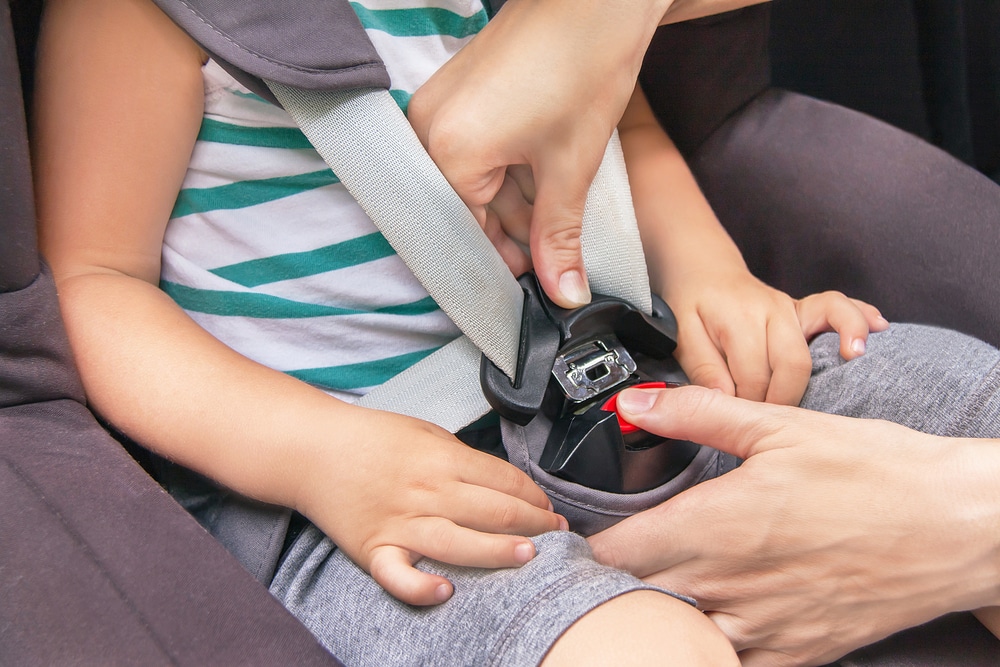
Every state in the U.S. has guidelines for car seats. All states require that babies and children use car seats until they reach a certain age, height, and/or weight. Car seats must meet certain safety standards, and should always be used correctly. Here are some tips for buying and using a car seat:
- Always follow your state’s guidelines for car seats.
- Children should ride rear-facing for as long as it is applicable and safe.
- Once children graduate to forward-facing seats, they should use a harness until they reach maximum age/height/weight.
- Once children are old enough or have outgrown car or booster seats, they should ride in the back seat using the appropriate seat belts properly fastened.
- When buying a car seat, make sure it has a manufacturer label with expiration date, make, and model.
- Make sure the car seat is properly installed before placing your child in it.
- Avoid car seats that are:
- Second-hand outside of the expiration date
- Have been involved in an accident
- Have noticeable wear and tear
- Missing manufacturer labeling
- Register your new car seat with the manufacturer to stay up-to-date on safety information or recalls.
Never leave your child unattended in a car and/or car seat. Heatstroke can happen quickly to children who are strapped inside a car alone.
If you need help buying or installing a car seat, many fire departments and health departments offer classes or free installation. Check your local community resources to see what services are available in your area.
Play Time Safety Tips
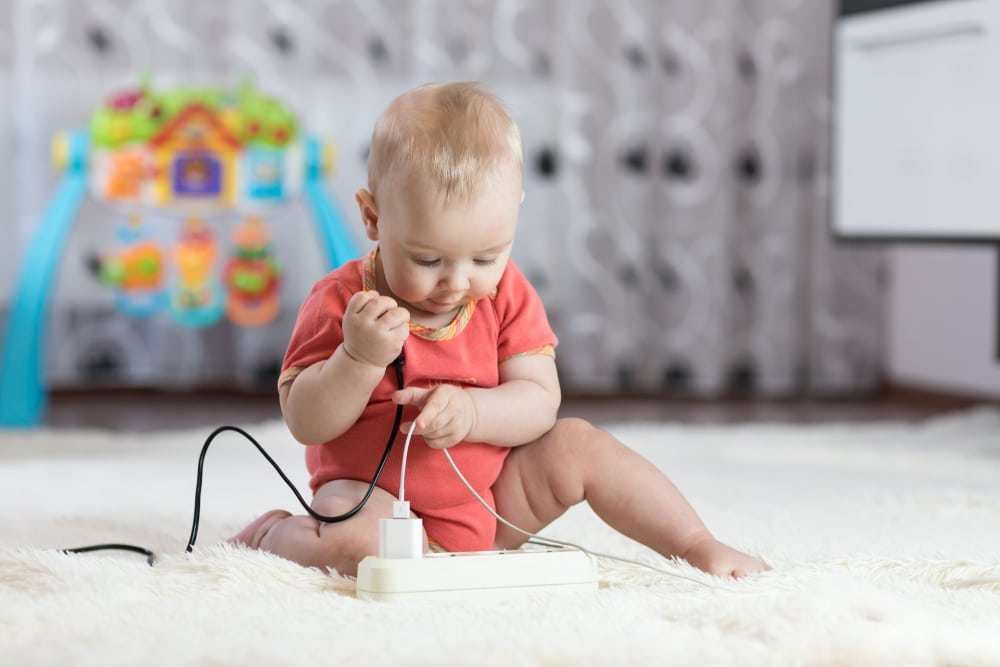
Play time is so important for babies and young children. Babies and children learn a lot through play, including developing their brains and bodies, and learning independence. As you begin to incorporate play more into your child’s life, consider these safety tips to help them enjoy play time with as little risk as possible:
- During play time, never leave your baby or young child unattended.
- Stay in the same room as your child if they are in a swing, bouncer, or inclined sleeper.
- Never place your child’s toys on a bed or other surface that can is unstable.
- Always follow the manufacturer’s instructions for assembly and use of baby or children’s products.
- Only use toys and activity centers that are age, height, and weight appropriate for your child.
If you have baby or children’s products that become damaged or defective, contact the manufacturer and discontinue use.
Bathroom Safety Tips
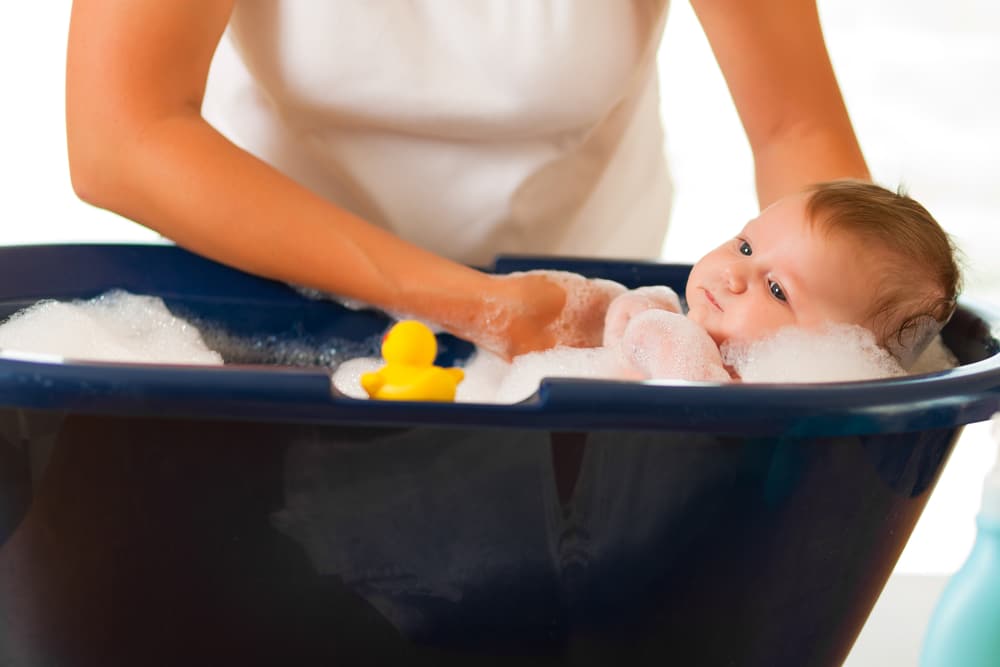
Bathing a baby or toddler can be a mixture of fun and anxiety. Babies sometimes don’t like bath time, so it is up to you to make it a fun and engaging experience. Of course, it should also be a safe experience. Here are some tips for making bath time fun and safe for you and your baby:
- Collect everything you need for bath time before you get started.
- Set up the bath tub and have everything ready before you bring your baby in.
- Check the water temperature again right before you begin to make sure it isn’t too hot or cold.
- If you are using a baby bath seat or reclined bath, make sure it is positioned on a flat surface out of reach of faucets.
- Never leave your baby unattended in a bath tub, seat, ring, or inclined bathing tub. Don’t leave them alone with other children either.
- Always completely drain the tub after the bath.
- Once your baby starts to grab and reach, make sure there are safety handles on faucets and the toilet lid.
- Use a cushioned cover for the bath tub faucet so your toddler or child won’t hurt their head if they bump it.
- Keep all bathroom cleaners out of reach of children, preferably underneath a locked cabinet.
- When purchasing bath time items for your child, look for the JPMA Certification Seal.
- Follow all manufacturer instructions and guidelines.
Bath time can be a great experience for you and your baby. As your child gets older, it can become a great time for bonding and play as well. These bath time safety tips are particularly important for parents of a child with cerebral palsy or other disorders that affect their mobility.
Have Questions about Baby or Children’s Products and Safety?
As parents, we all want our children to be safe. We also want the products we buy to be safe and perform as advertised. If your child has been injured due to a dangerous or defective product, it is natural for you to have questions about your legal rights and what recourse may be available.
At MedMalFirm.com, we can help you find answers. Contact us today for a free consultation with one of our lawyers. We handle many different types of cases, including birth injuries and defective products. Learn more by calling us at 877-887-4850, or by filling out our online form.
Sources:
